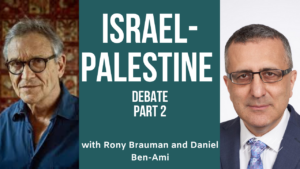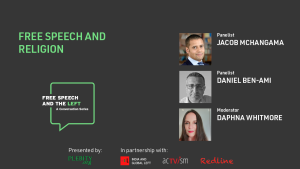
Redacted. Creative Commons License – Jack Zalium
“We protect the values and policies that allow free knowledge to thrive. “ –Wikimedia Foundation
See also: Who decides what we are allowed to say?
We recently wrote about Pakistan’s 48 hour ultimatum to Wikipedia–either remove certain ‘sacrilegious’, i.e. blasphemous content, or be blocked in Pakistan.
In fact, after the 48 hours were up, Wikipedia was blocked throughout the country. The ban was short-lived. Access was restored after a three day suspension.
Who won, blasphemy laws or free speech?
Neither Pakistani authorities nor Wikipedia have divulged what exact content was the cause of the problem. Because of this lack of transparency, it isn’t possible to know if Wikipedia bowed to censorship and removed the content or if it remains on the site.
Various news articles mention that the block was lifted due to intervention by Pakistan’s prime minister, Shehbaz Sharif. Wikipedia says they “…[don’t] make decisions around what content is included on Wikipedia or how that content is maintained.”
Transparency is the prerequisite for free speech. Because Wikipedia and the government of Pakistan have not told us what content was in dispute, we can’t know if Wikipedia has been successfully censored or not.
Plebity reached out to the Wikimedia Foundation to ask if the content that led to their three day ban in Pakistan was still on the site or not. We haven’t received a reply.
The most likely explanation for Wikipedia’s failure to disclose what content was at issue is that they wanted to leave the door open to an accommodation with the Pakistani authorities.
At a minimum, their own declared commitment to transparency would dictate that they issue a clear statement as to whether or not they removed content based on Pakistani pressure.
Bowing to censorship and making accommodations has been the pattern for tech companies dealing with authoritarian regimes that represent large markets. That appears to be what has happened in this case. As governments increasingly pressure the online giants to censor their content, we’ll see more and more cases like this.
Wikipedia is a non-profit and theoretically not bound by the profit motive driving Silicon Valley tech companies. Nonetheless, in this case it appears to be acting no differently from the other tech giants.
As a non-profit, Wikipedia doesn’t have owners in the same way as a for-profit corporation. But management still has a material stake in its overall success; their livelihoods and personal status depend on it.
Volunteer content editors have a stake in their areas of interest–in promoting their own views, and that friction among volunteers on the site theoretically leads to a balanced view. But, there have been many cases of special interests gaming the Wikipedia system and directly influencing content. It’s an imperfect system, but transparency is the only defense.
Whatever the reason for Pakistan’s reinstatement of Wikipedia, free speech was not the winner here. The damage to Wikipedia’s credibility has been done. The credibility of all their content is put in doubt if there is a possibility that they caved in to pressure to stealthily change some part of it.
The public square, where we meet and exchange ideas, is a commons that belongs to everyone. Free citizens need to own their public square. Wikipedia’s credibility rests on its much vaunted transparency. But their lack of transparency in this case shows us how far we are from that reality.
Note: Plebity reached out to the Wikimedia Foundation to ask if the content that led to their three day ban in Pakistan was still on the site or not. We haven’t received a reply.
—
https://techcrunch.com/2023/02/06/wikipedia-pakistan/
https://www.dawn.com/news/1735273



